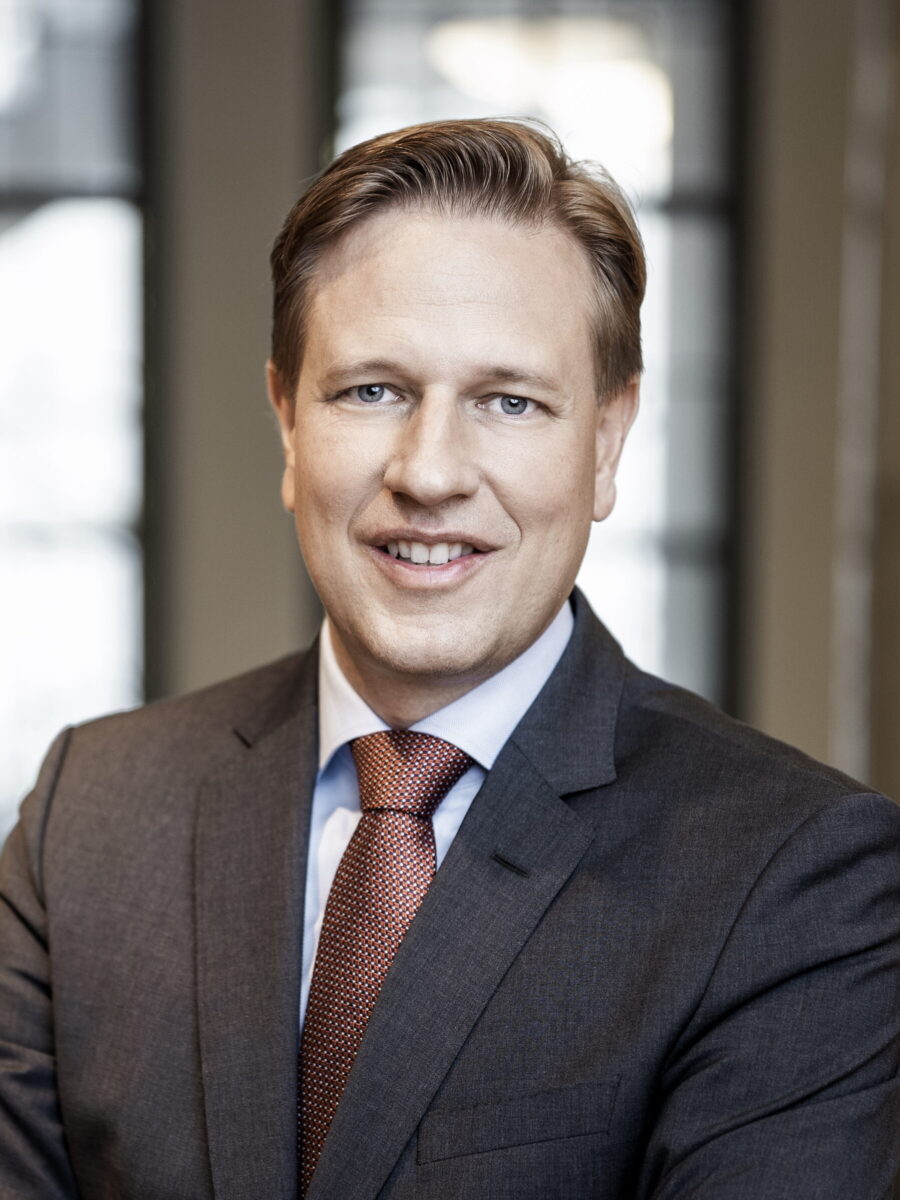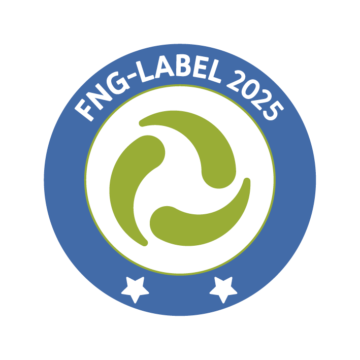Investment Strategy
The fund management invests in high-quality companies that should be able to generate above average and sustainable earnings growth over a long period of time. The key selection criteria are high barriers to entry, end-markets with structural growth and excellent management teams.
- Investment in global growth companies of all sizes
- Concentrated portfolio of approximately 30 stocks
- Active and benchmark-agnostic approach
- Long-term investment horizon
Learn more about our investment philosophy in equity fund management
Fund data
| ISIN | LU1900076933 |
|---|---|
| WKN | A2N73B |
| Inception date | 11.12.2018 |
| Issue price (27.03.2025) | 198.95 EUR |
| Redemption price (27.03.2025) | 189.48 EUR |
| Fund volume | 125.86 Mio. EUR |
| Share class volume | 19.32 Mio. EUR |
| Currency Fund / Share Class | EUR / EUR |
| Minimum investment | - |
| Asset Manager | Joh. Berenberg, Gossler & Co. KG |
| Management company | Universal-Investment-Luxembourg S.A. |
| Custodian | BNP Paribas S.A. Niederlassung Deutschland |
| Use of income | Accumulating |
| End of financial year | 31.12. |
| Registration and Distribution | DE, AT, CH, LU, ES |
| SFDR Classification (Sustainable Finance Disclosure Regulation) | Article 8 |
Costs
| Issue surcharge | Up to 5.00% |
|---|---|
| Flat-rate fee p.a. | 1.56% |
| Total Expense Ratio (TER) p.a. | 1.72% |
| Performance fee | none |
Chances and risks
| Chances | Risks |
|---|---|
| High return potential of stocks over the long-term | High susceptibility of shares to fluctuation, price losses possible |
| Development of growth stocks occasionally above average | Share value may fall below the purchase price at which the customer acquired the share |
| Development of small-cap stocks above average in certain phases | Below-average development of growth stocks possible at times |
| Possible additional earnings through individual value analysis and active management | Below-average development of small stocks possible at times |
| No guarantee of success for individual value analysis and active management | |
| Concentration risk due to focus on investments in the Euro currency and European region | |
| Foreign currency investments and transactions denominated in foreign currencies are subject to exchange rate risks |
Further details on the opportunities and risks of this fund can be found in the sales prospectus.
Indexed performance
Performance in 12-month periods
Monthly performance
| Year | Jan | Feb | Mar | Apr | May | Jun | Jul | Aug | Sep | Oct | Nov | Dec | YTD |
|---|---|---|---|---|---|---|---|---|---|---|---|---|---|
| 2018 | - | - | - | - | - | - | - | - | - | - | - | -4.49 | -4.49 |
| 2019 | 8.21 | 5.76 | 4.46 | 5.05 | -5.49 | 4.97 | 2.39 | -0.16 | 0.87 | 2.25 | 5.48 | 3.65 | 43.62 |
| 2020 | 0.63 | -3.94 | -14.15 | 12.54 | 6.00 | 5.07 | 4.48 | 7.63 | -0.38 | 0.95 | 5.90 | 2.53 | 27.75 |
| 2021 | 1.27 | 5.05 | 1.69 | 4.49 | -4.43 | 7.78 | -0.33 | 2.62 | -5.15 | 5.74 | -2.86 | 0.29 | 16.35 |
| 2022 | -10.61 | -7.39 | 0.63 | -7.13 | -3.91 | -6.41 | 10.62 | -5.45 | -7.74 | 2.61 | 1.05 | -7.78 | -35.80 |
| 2023 | 6.72 | -0.69 | 3.31 | -0.16 | 4.65 | 2.34 | 1.63 | -2.62 | -2.61 | -1.90 | 8.40 | 2.24 | 22.69 |
| 2024 | 2.50 | 4.09 | 0.48 | -3.10 | 2.82 | 3.33 | -1.39 | 0.75 | 0.36 | 0.46 | 5.80 | 2.65 | 20.06 |
| 2025 | 5.48 | -0.13 | - | - | - | - | - | - | - | - | - | - | -1.73 |
Source: Berenberg, Management company
The charts and tables regarding performance shown here are based on own calculations according to the method developed by the German Investment Funds Association (BVI). They illustrate past performance. Future performance can deviate both positively and negatively from these calculations. Gross performance (BVI method) takes into account all charges at fund level (e.g. management fee), net performance plus the issue surcharge. Additional charges can arise for individual investors (e.g. custody account fees, commissions and other fees). Model calculation (net): An investor wants to purchase fund units for EUR 1,000 EUR. Considering a max issue surcharge of 5.00% he has to payEUR 50.00 for the purchase. Also, fees may be charged for the administration of the safe custody account, which will lower the performance. Past performance is not a reliable indicator of future performance.
Performance after issue surcharge
| 1 year | 10.34% |
|---|---|
| 3 years | 11.31% |
| 5 years | 71.69% |
| since inception | 89.48% |
| Max. Drawdown 5 years | -39.92% |
Source: Berenberg, Management company | State: 27 Mar 2025
Risk figures
| Volatility - 1 year | 14.17% |
|---|---|
| Volatility - 3 years | 17.07% |
| Sharpe Ratio - 3 years | 0.06 |
| Maximum Drawdown - since inception | -39.92% |
Currencies
Sectors
Countries
Asset classes
Top Holdings
Monthly market comment
US stock markets came under pressure due to growth concerns of US technology stocks, high investor positioning and the trade dispute. The Berenberg Global Focus Fund outperformed its benchmark. BYD's stock price recovered after the company launched a novel solution for city and highway autopilot this month. Tencent rallied in February, driven by the integration of DeepSeek into Tencent's messaging app Weixin. Wheaton hit a new high in February as it exceeded its 2024 production targets. At TSMC, investors were unsettled by the Trump administration's course. Marvell suffered in February, along with other semiconductor stocks, from a weaker overall market, cash outflows in the tech sector and concerns about a weakening economy. Amazon suffered from concerns about a weakening consumer and the sell-off in the tech sector. We have recently increased our holdings in defensive stocks and added Novo Nordisk to the portfolio. We see a very attractive risk-return profile after the sharp sell-off.
Portfolio Management

Martin Hermann
Martin Hermann has been a Portfolio Manager at Berenberg since October 2017. Before joining Berenberg, he was a Portfolio Manager and Vice President within the award-winning "Europe Equity Growth Team" at Allianz Global Investors. His responsibilities included Deputy Fund Manager for the International Equity Growth Fund. He started his career in 2010 as an Investment Trainee in the Graduate Program at Allianz Global Investors. Martin Hermann holds a Master in Investment Analysis and Corporate Finance from the University of Vienna and is CFA Charterholder.

Kay Eichhorn-Schott
Kay Eichhorn-Schott has been a Portfolio Manager at Berenberg since October 2017. Kay started his career in the Berenberg International Graduate Program in October 2015 and joined the Wealth and Asset Management division in London after completing the program. He holds a Master of Science in Finance and studied at EBS Business School, University of Bath and Texas A&M University. Kay Eichhorn-Schott is a CFA Charterholder.

Matthias Born
Matthias Born has been CIO Equities since 2017 and Head of Investments of Wealth and Asset Management since 2019. He started his career in 2001 at Allianz Global Investors (AGI), where he managed portfolios for European Small Caps, European growth stocks and German equities from 2002 to 2017. In his 16 years at AGI, he has built two very successful equity franchises and was responsible for client assets in the double-digit billions. Matthias Born has an excellent track record over two decades and received several awards for his outstanding and consistent performance. He studied at the University of Wuerzburg and holds a degree in Business Administration.
Consideration of ESG Elements
Identifying companies and business models that will be successful in the long term is the basis for good investment decisions. Environmental, Social and Governance (ESG) factors are key factors in decision making and are therefore integral
components of the investment process.
CO₂-Intensity
The fund does not actively manage its carbon footprint, however, emissions data such as CO2 intensity are relevant parameters which can be used to assess the efficient management of a company and the extent of transition risks.
ESG Score
The data provider MSCI ESG uses an ESG score of 0 to 10 to assess the management of material ESG risks of portfolio holdings compared to competitors.
ESG Controversies Screen
Investments in the fund are monitored for ESG controversies and, with the help of MSCI ESG data, flagged according their severity. Thereby, potential ESG risks of investments are identified. In the case of an orange flag (severe controversy), we enter into an active exchange with the company. In the case of a red flag (very severe controversy), the company is excluded.




